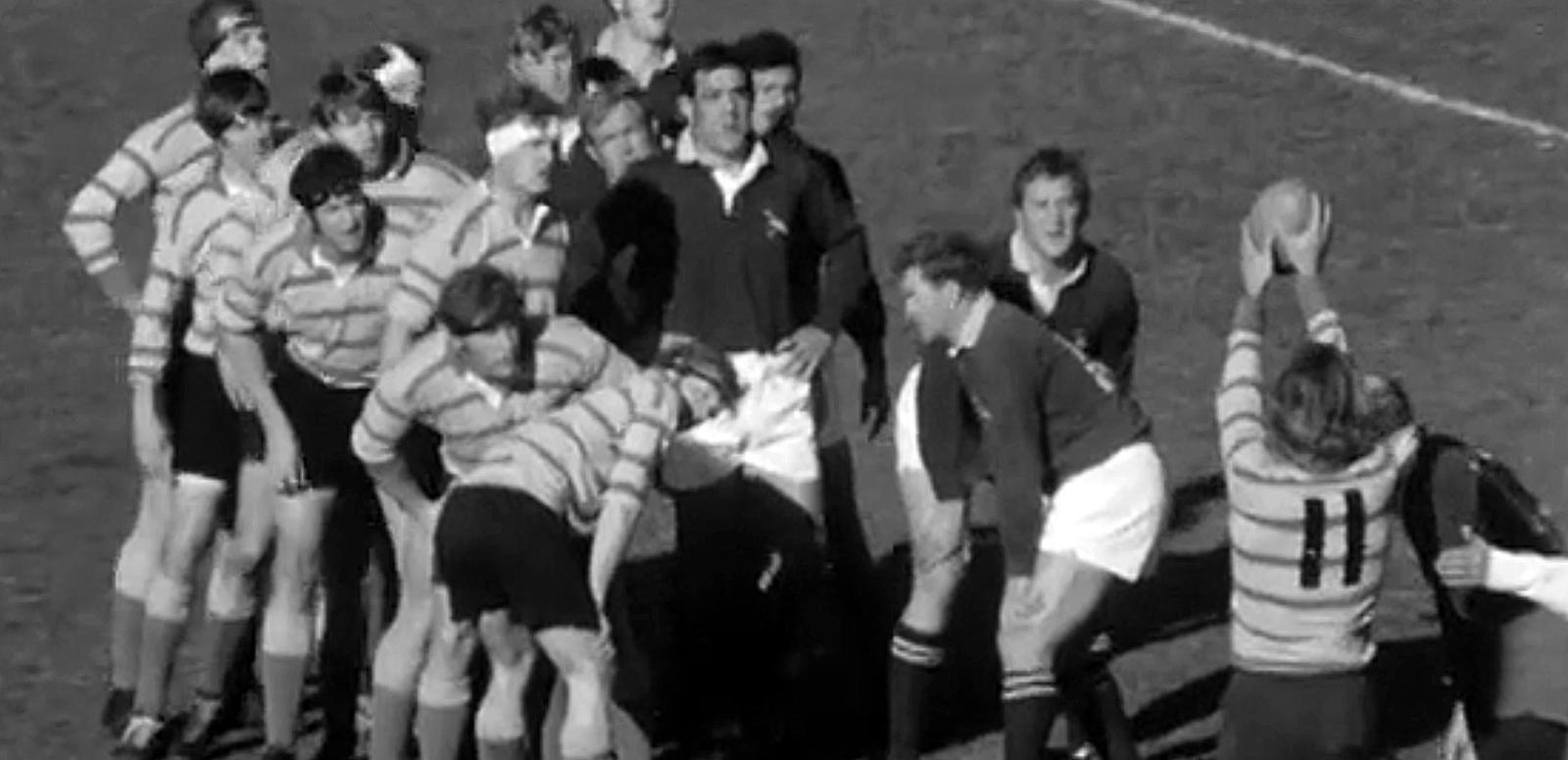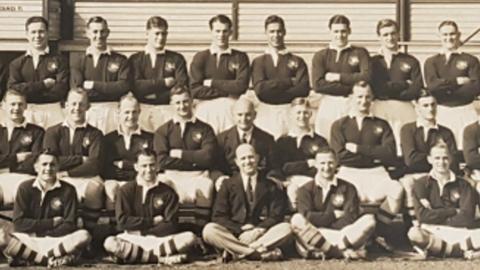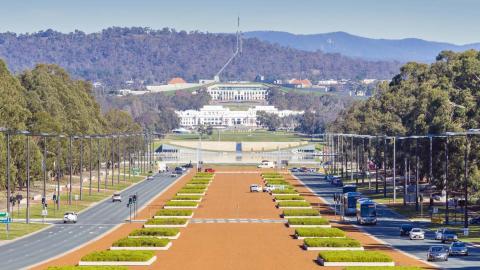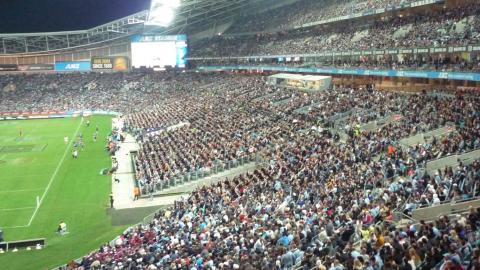

Springboks at Manuka Oval, 1971
During the Centenary of Canberra year, the NFSA’s TV Unit looks at our holdings of Canberra’s first commercial television station, CTC 7 (now Southern Cross Ten). In working through the news collection we discover some gems that highlight Canberra’s hidden or forgotten history.
The British and Irish Lions rugby union team are touring Australia in June 2013. Imagine watching this international team play Australia through barbed wire fences, with two rows of police surrounding the boundary fence. Not in Australia surely, and definitely not at the picturesque Manuka Oval in Canberra with its white picket boundary fence.
But this is exactly what occurred in 1971 when the South African Springboks came to Australia for a six-week tour at the height of their country’s apartheid policy. For the first time in Australia’s history the field of sport became a political arena.
Courtesy of Southern Cross Austereo. NFSA: 676506
Note: The audio on the excerpt is location sound only.
The tour
Throughout their Australian tour, the Springboks faced demonstrations and trade union bans over South Africa’s apartheid policy. The team was forced to travel in small planes by regional carrier Hazelton Airlines, after Qantas and TAA refused to carry them. In Canberra the players had to be privately billeted after protesters found out they were booked to stay at the Commodore Motel on Northbourne Ave.
After violent clashes between police and demonstrators in the other capital cities (a state of emergency was declared by Queensland Premier Joh Bjelke-Petersen), ACT police met with members of the Canberra Anti-Apartheid Committee, chaired by Michael Wright, to reduce the risk of violence at the match. Four hundred police came from NSW to assist local police. Bomb threats were received concerning the Goulburn-Canberra railway line and also the Department of Supply building, which was evacuated as a result.
A seven-foot (2.13 metres) high fence was erected around the boundary at Manuka Oval. Bags of sand were placed over large gratings and smaller gratings welded into place so they couldn’t be used as weapons. Liquor, soft drink cans and bottles were banned from the grounds. Patrons could be searched by police during entry.
The game
On game day, 21 July, demonstrators grouped themselves around the ground and chanted ‘Go home racist’ (clearly audible throughout the above clip). Mark Davison, an ACT second rower who had refused to be considered for selection in the team, handed out anti-tour, anti-apartheid leaflets to spectators. Protesters threw two smoke bombs on the field.
Police made 49 arrests, including nine women and executive member of the ACT Civil Liberties Council, Ken Fry. Observers complained about rough police treatment and arrests being arbitrary and unreasonable.
The clip shows some of the first half of the ACT versus Springboks match in front of the 11,000-strong crowd. It features Maori John Tumaturoa (No. 9) playing his first match for the ACT (striped jersey, dark shorts), a dropped goal by South Africa’s Dawie Snyman (No. 17) and the first try, scored by Tonie Roux (No. 22, South Africa).
The final score was 34–3 in South Africa’s favour. Peter Payton scored ACT’s only points with a penalty at the 24-minute mark. ACT captain Owen Butler was very pleased with his team’s efforts to half-time but admitted they’d found it impossible to stop the Springbok forwards in the second half. South African captain Hannes Marais commented that it was a hard, but enjoyable game. The Springboks won every game on the tour.
The aftermath
The UN General Assembly declared 1971 the International Year for Action to Combat Racism and Racial Discrimination. Australia’s actions and policies in regard to its Indigenous people also came under scrutiny in the wake of the anti-apartheid demonstrations. Demonstrators later claimed victory when the South African cricket team’s scheduled tour of Australia in the 1971-72 summer was cancelled.
The NFSA’s television news collection contains other footage and stories on the Springboks’ tour of Australia in 1971 and the protests that accompanied it.
The National Film and Sound Archive of Australia acknowledges Australia’s Aboriginal and Torres Strait Islander peoples as the Traditional Custodians of the land on which we work and live and gives respect to their Elders both past and present.


